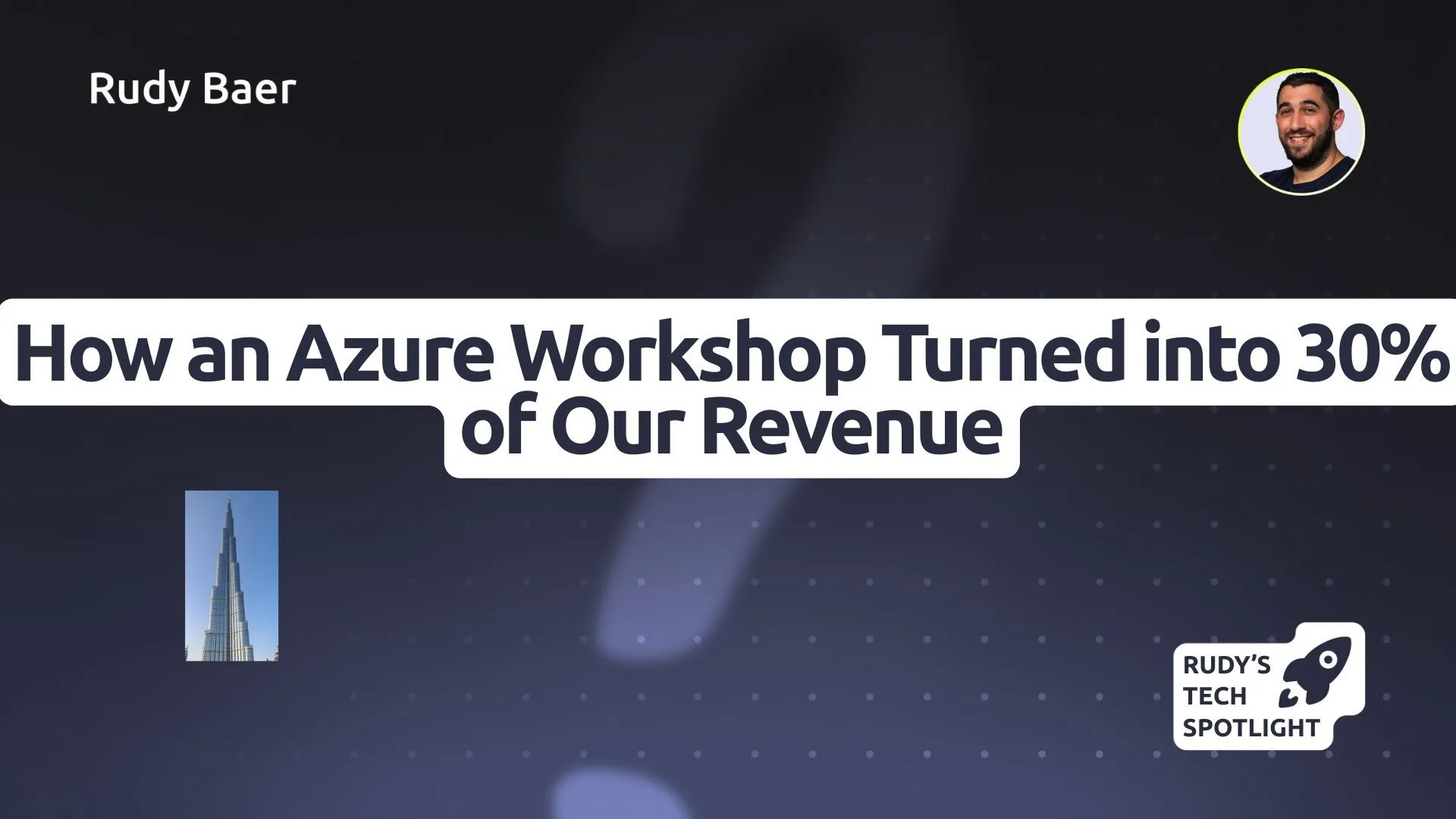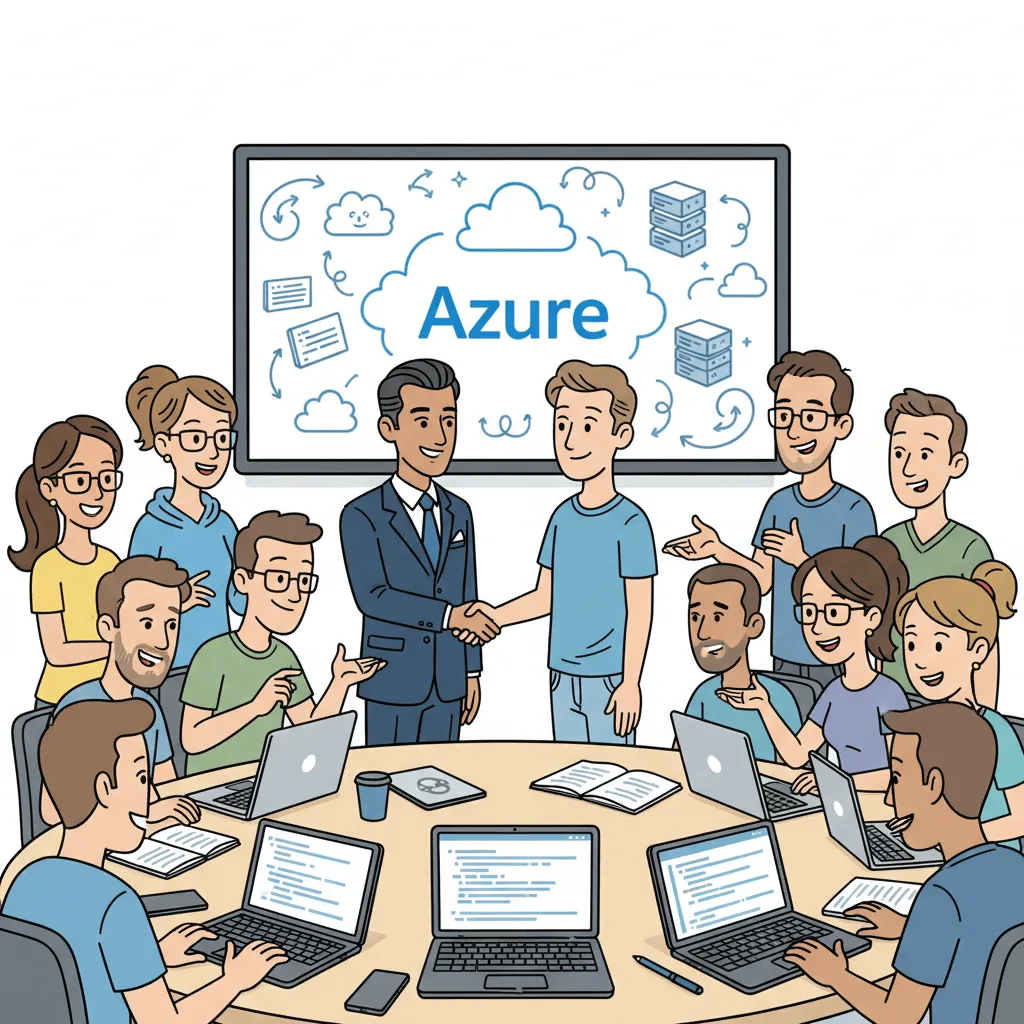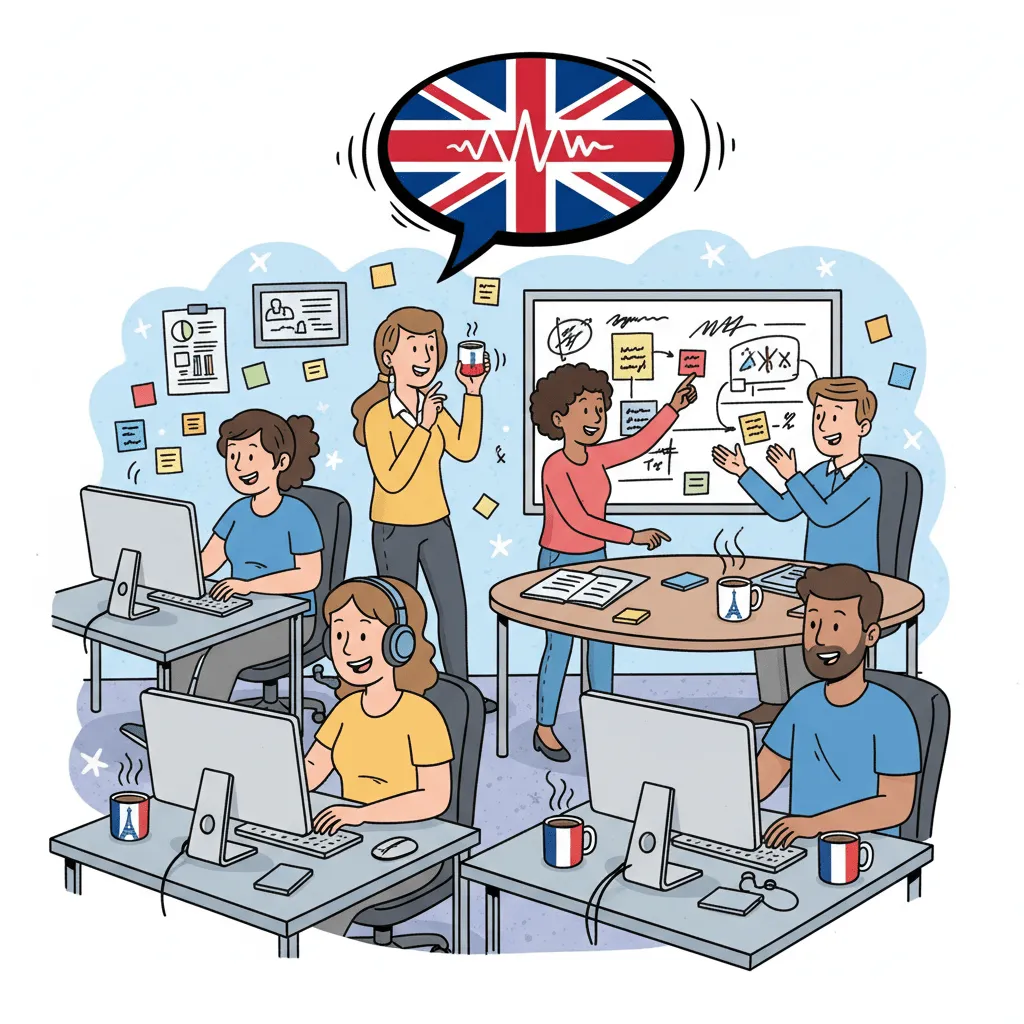How an Azure workshop turned into 30% of our revenue

Back in 2019, I was organizing Codeur en Seine and doing the foundational work that keeps a conference alive. Emails, schedules, speaker logistics. I was managing speakers, chasing bios, fixing last minute changes. Julien Dubois was on my list, we knew each other for a few years already through JHipster. He was (and still is) working at Microsoft. We exchanged emails about a few ideas.
He sent me an email about a workshop on Spring and Azure as we were using it. I was not super motivated to go but as I was reading the email out loud in the office space, Nicolas Torion, our junior with one year of experience at the time (a long time ago), started shining. The guy had stars in his eyes. Microsoft was calling and he was ready.
I took that as a sign. Sometimes you go just to break the routine, to get out of your bubble, to keep the team awake. We decided to attend, with zero expectations.
The Random Dubai Connection
We arrived in a small room at Microsoft for the workshop, a dozen people around the table. Julien tells me someone from Dubai is joining. I had never set foot in Dubai. Everyone goes around introducing themselves. The Dubai guy says he is looking to recruit developers and bring them there.

When someone says “I’m hiring” in front of me, my reflex is: “I’m selling developers and I can help you”. We discussed during the day, I took his contact, added it to our CRM, and sent a polite follow-up. No pressure, just a “nice to meet you” email. Then I went back to normal work.
Two months later, my phone rings with a foreign number. Guess who. The Dubai contact explains he can’t find strong developers locally. They still have to deliver, so he wants to try working with us in async remote. One condition: he wants us on site in Dubai for one week to kick off the project.
No contract signed. No guarantee. Just words and urgency.
This is a classic situation. The prospect sells a nice dream. But without a contract, you can lose time, get used for free expertise, and come home with nothing. But requiring a contract can and will add friction to a fragile relationship. I had to decide. Do we go or not?
I did the math. Worst case, it would cost our company about 3,000 euros for the week, flights and extras. So the worst case was free holidays for my partner and I.
Best case, we build a new relationship, maybe a decent mission.
We took the “risk” and we went.
One Week On Site, No Sleep, Lots of Work
We landed in Dubai, destroyed by the flight. We went straight to the hotel for a quick shower, then straight to the first meeting. Not ideal conditions. Their company had around a hundred people. After 30 minutes, I felt it. They had an issue on the UX part of the product, it was creating complexity and a bit of chaos that we could easily fix since we are well versed on the topic.
The person who brought us in wasn’t the CTO and it created a bit of tension initially. A pretty natural consequence of bringing external members to a team: defiance.
But everyone involved stayed professional and we could get past this initial tension.
This is where I’m comfortable: when things are messy, I switch to plan mode. I wrote the action plan, clarified responsibilities, defined the first milestones, set the rules for async communication, and drew the architecture decisions that could be taken fast and those that had to wait. We didn’t try to impress with slides. We solved the big blockers and made people move.

We flew back to France on March 8, 2020. If you remember the dates, that was right before lockdown started. Airports started closing a few days later. Fun timing.
That one-week trip with no contract ended up representing 30% of our revenue for the next two years. Six developers full-time on the account. Because we already had a remote culture at Bear Studio, the collaboration continued smoothly when the world went into confinement. The client had the urgency and budget, we had the team and the method. The fit was natural.
People like to romanticize these stories after the fact, like some destiny thing. It was not destiny. It was a simple chain of small moves.
- I showed up to a workshop we didn’t care about technically, because my junior was excited.
- I grabbed a contact and did a courtesy follow-up.
- I answered the foreign call.
- I accepted a controlled risk with a clear downside.
- When I arrived, I saw the opportunity to help and did what it takes.
No genius, no magic.
What I Learned, And What You Can Actually Reuse
1) Your network is your first filter
I didn’t meet the Dubai contact on a random cold message. He appeared in a Microsoft room where Julien was hosting, and I trust Julien. It doesn’t remove risk, but it reduces it. When someone comes through a known person with a real reputation, it’s already a different game. “Your network is your net worth”.
2) Cap the downside, then move
We calculated the maximum loss. 3,000 euros and one week of our time. That’s not nothing, but it’s a bet we could afford. Too many teams lose opportunities because they want guarantees before any step. In business, many good things come from small, fast bets where you keep the downside small and the upside open.
3) Get on a plane when structure is missing
Some problems you can’t fix by sending a long email. At the client’s, I saw confusion in the organization. Remote kickoff would have failed. The one week on site was enough to align, defuse politics, write the plan, and get the right people in a room. After that, remote was fine.
4) Bring your operating system
We arrived with our remote habits already set. Async updates, documentation, clear owners, sprint rituals that don’t waste time. When COVID hit, the machine didn’t stop for us. If you want to sell remote work, you need a culture that actually works remotely before the client pays you.
5) Execution beats decks
They didn’t need a keynote. They needed clarity by the end of the week. We delivered an action plan, not a brochure. This is where small teams win against bigger ones, you move faster, you cut the theater, you get outcomes.
Signals I Look For Before Saying Yes
- Anchor in my trusted network, even second degree, not pure cold.
- Real pain and a clear budget holder, not a “we are exploring options.”
- A downside I can swallow if it fails, with a clear timeline.
- Early signs of internal sponsorship, even if politics are messy.
- A team on my side that wants to go and will learn something.
What This Story Changed For Us
- We doubled down on sources of opportunities like conferences and workshops. Not to sell with a booth, to meet people in the hallway and follow up.
- We wrote a repeatable kickoff format we can run anywhere, same backbone with local adaptations.
- We strengthened our remote rituals so a client can plug into our cadence in one week.
- Most importantly: The team level up in English (remember we are French), we paid English lessons to any member in need. Our remote culture became even stronger and better.

Two Details People Forget
- Timing. We returned the 8th of March 2020, just before lockdown. If we had waited, the trip was dead and probably the deal too. Momentum matters.
- Junior energy. We went because Nicolas, with one year experience, was excited by the idea of going to Microsoft. Sometimes your youngest teammate is the spark. Respect it.
The Bottom Line
So yeah, that random Azure workshop ended up as a cornerstone chapter for Bear Studio. If I don’t write this somewhere, I’ll forget the details and eventually people will think it was all strategic mastermind stuff. It wasn’t. It was just a series of little nudges, one after another, some luck, and a junior getting overexcited at the office.
If sharing this mess helps even one person hesitate a bit less when weird opportunities pop up, then perfect. Take a small risk, keep the downside clear, and accept you’ll never have the full plan up front. Sometimes real life is just a string of emails, jet lag, and second-guessing, with a plot twist you did not see coming. That’s it, that’s the story. If it makes you feel like giving luck a tiny opening next time, then I passed something useful on.

Rudy Baer
Founder and CTO of
BearStudio,
Co-founder of
Fork It! Community!
October 6, 2025
Business, DevOps, Entrepreneurship